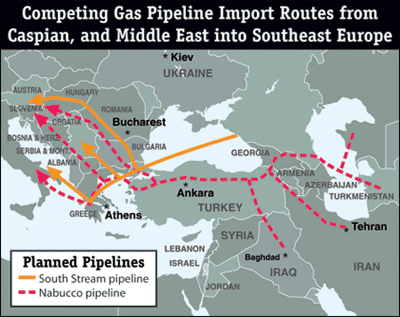Philip M. Giraldi, Ph.D. is the Francis Walsingham Fellow at The American Conservative Defense Alliance (www.ACDAlliance.org) and a former CIA counter-terrorism specialist and military intelligence officer.
Philip Giraldi was the foreign policy advisor to Ron Paul during his last presidential run.

Philip M. Giraldi
Imagine if you will a country dominated by heavily armed tribesmen who are fiercely independent, frequently engaged in activities that most observers would regard as criminal, deeply conservative in religion and culture but further divided along sectarian lines, and ruled over by a highly corrupt government that is fighting both a civil war and an insurgency. Throw into the hopper extremely rugged trackless terrain, porous borders, and security forces incapable of exercising jurisdiction outside of the capital city and it is a virtual witches’ brew. Many would immediately think of Afghanistan, where all of the above applies but the description equally fits Yemen, which also enjoys crushing poverty and high unemployment coupled with declining oil revenues and water supplies that can no longer sustain the population. Intelligence officers who are familiar with Yemen agree that coming to grips with the country’s tribesmen in an attempt to root out al-Qaeda will make Afghanistan look like a walk in the park.
Yemen might well become the next American quagmire if the plans of the Obama Administration in its global war on terrorism that is now referred to as “overseas contingency operations” are implemented. As is frequently the case in the imperial capital city Washington, the Obamas see another Yemen. It is an opportunity for nation building, to strengthen institutions and the economy and support an ostensibly friendly government to suppress terrorism. But it doesn’t take much to see what’s wrong with that approach. The Yemenis themselves are fearful of the consequences of too tight an embrace by Washington and are already trying to distance themselves. They see gangsterism and tribalism as their greatest internal security threats, not terrorism, and the best estimates for the number of al-Qaeda adherents in the country number in the low hundreds. And many of those are believed to be the grapes of wrath fruit of Guantanamo Bay, where the United States successfully confined Yemenis who were completely innocent, radicalizing them and turning them into terrorism proselytizers upon their return home.
Let’s face it, there is no such thing as complete security. Whatever security arrangements are made for air travel it will still be possible for someone to circumvent the system either through guile or luck. The Obama Administration’s response to a single thwarted terrorist incident involving an airline in which a small number of Yemenis were involved has proven that American presidents appear to need war, and an identifiable enemy to rally against, more than they need a foreign and security policy that is both proportionate and answerable to the national interest. Yemen is no more a threat to the United States than was Iraq even if its wild deserts do harbor a small number of terrorists. If one accepts at face value the claim of al-Qaeda in Yemen that the attempted airline bombing was in response to several American drone strikes, most particularly a devastating attack on December 17 that killed twenty-three, largely civilians, then it is clear that Congressman Ron Paul’s analysis that “they’re over here because we’re over there” is accurate.
The correct response to the Nigerian underwear bomber Umar Farouk Abdulmutallab is to fix the information sharing problems and modify existing screening procedures in light of the new developments. That would be the sane thing to do, but apparently it is not good enough for the White House. Instead, President Obama has designated a new front for a military confrontation with the terrorist menace, and that will be Yemen. There are reports that special ops soldiers are already in country with plans to introduce still more US soldiers and double the military assistance to Sana’a. By my tally, the US is now actively fighting terrorists in a number of lands to include Iraq, Afghanistan, Pakistan, Somalia, the Philippines, and Yemen. That makes a minimum of six separate and distinct overseas wars all being engaged in without an act of war from Congress and directed against enemies that do not actually directly threaten the United States.
Read morePhilip Giraldi: Yemen and the War of the Worlds






